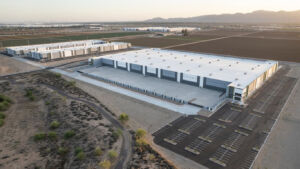Today, in the fast-changing manufacturing world, businesses need to be efficient, precise and flexible to stay alive. Because markets are becoming more competitive and customers expect more, companies are using process automation systems to retain their advantage. They make it possible for production to be controlled by machines that regulate themselves, making work more efficient and errors much less common. Both factories and plants are being transformed by the use of automation. Manufacturers benefit from consistent products, better safety standards and stronger ability to respond to new situations. In recent years, businesses have become able to observe, tinker with and maximize each production stage with much greater precision. This means faster processes, lower management costs and greater happiness for customers. With digital transformation happening quickly, amazing manufacturing strategies focus on automating processes. It’s important to go ahead rather than simply following along.
Manufacturing now stands to improve in many areas thanks to automation.
These days, just doing things by hand doesn’t cut it to keep up with the market. Manufacturers today are required to provide products that are packaged quickly, offered at a lower cost and are of superior quality all at once. Because of this need, there is now widespread use of automation systems.
This means sophisticated, programmable systems take the place of human supervision. Robots on a production line, as well as sensors that manage temperature and pressure immediately, help boost efficiency all around the factory.
LOCAL NEWS: 100 best places to work and live in Arizona for 2025
Top reasons to use Process Automation Systems
1. Operational Efficiency
Systems working automatically can never grow tired or stop operating. The result is that production moves faster, delays are lowered and there is less downtime when someone changes shifts.
2. Cost Reduction
You can make labor costs go down without affecting performance. Because automation leads to fewer problems and less effort, it helps a business gain greater returns.
3. Being accurate and performing the same way every time
It helps produce products that are the same in quality. Real-time monitoring and control ensure the process stays the same and prevents failures.
4. Data-Driven Insights
Using integrated tools and sensors helps cart manufacturers get useful data. Using automated review, manufacturers are able to check performance, spot issues and use accurate data to make decisions in real time.
The Advantage of Industrial Process Automation in Strategy
It’s more than just about making things more efficient—industrial automation is a key asset. Organizations using these technologies can handle changes in the market, grow as needed and comply with regulations.
Enhanced Flexibility
Thanks to automation, manufacturers can quickly set up their lines to produce various products or more or less volume. Thanks to this flexibility, businesses can meet new consumer requests without suffering significant costs for downtime.
More Visibility and More Control
All phases of production are clearly visible with automation. All the processes from gathering raw materials through packaging and delivery are monitored by central control systems.
Regulatory Compliance Just Got Easier
In industries where there are many rules, like food, pharmaceuticals and electronics, automation helps ensure every product meets the standards which reduces the chance of being fined or recalled.
How Smart Technology Helps Manufacturing Prepare for the Future
The evolution of industries requires the evolution of their main tools as well. Intelligent automation which allows systems to learn, change and improve, will play a major role in manufacturing’s future.
Autonomous Decision-Making
The latest automation tools depend on AI and ML to allow systems to react to changes as they happen. If a machine spots an unusual rise in temperature, it can correct the setting or shut off to avoid damage.
M2M Communication
Direct communication between machines happens in advanced digital factories. With this connection, different systems can operate smoothly together, lowering their response time to problems.
Scalable Ecosystems
Scalability is a main goal of intelligent automation systems. When firms progress or diversify, expanding their automation infrastructure does not typically interrupt their everyday activities.
Final Thoughts
Since industries keep evolving, relying on industrial process automation is not only an advantage, but is now essential. Manufacturers are able to meet the demands of today and succeed thanks to being able to produce faster, smarter and with more consistency. Automation raises efficiency and also affects how businesses handle market shifts, control risks and think about future plans. Having intelligent systems means companies can see important insights when they happen, waste less and streamline all their operations. Taking these steps means customers are happy, the company is sustainable and its profits grow. Now that automation tools are becoming simpler and easier to use, small and mid-sized manufacturers can use them too. The factories of tomorrow will depend greatly on linking different machines and using data to make choices. Combining these systems forms the base for making the platform innovative and scalable. Automating processes today helps ensure success will be maintained in the manufacturing world of tomorrow.




